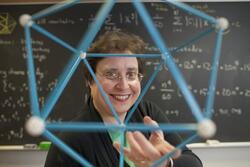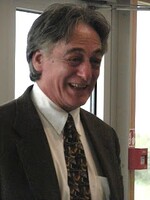Spring 2021 Virtual Section Meeting
Our spring meeting was held virtually on Saturday, April 17, 2021, 8am--1pm.
Schedule
Welcome: Announcements / technical issue resolution / social time
8:15 -- 8:30
Invited Speaker: Susan Jane Colley (Oberlin College & Editor of The American Mathematical Monthly)
8:30 -- 9:10
Business Meeting: Announcements and awards presentations
9:10 -- 9:30
Contributed talks: Undergraduate, graduate, and faculty speakers
9:40 -- 11:20
Undergraduate abstracts (3 concurrent sessions)
Faculty/Grad abstracts (3 concurrent sessions)
Invited Speaker: Andrew Woldar (Villanova University)
11:35 -- 12:15
Social Activities: Student activity, faculty discussion
12:15 -- ??
Invitation:
PASSHE Co-requisite Math Courses Summit: more details
1:00 -- 4:00
Invited Speakers
Student Activity
Do you like Sudoku? Do you like to play Set? In this activity, we will make connections between Latin squares (Sudoku is a specific type) and the game Set. Don't worry, no prior knowledge or puzzle/game experience is required! Join us if you want to have some fun with some math puzzles and games!
Faculty Discussion
Publishing in MAA Periodicals: Invited speaker Dr. Susan Jane Colley will briefly survey the variety of journals published by the MAA, highlighting what the Editorial Boards seek in submissions. She will be glad to entertain questions at the end, especially with respect to submitting to The American Mathematical Monthly.
Slides from Susan's presentation on MAA publications: PDF
Additional informal faculty discussion to follow, based on participant interest.
PASSHE Co-requisite Math Courses Summit
EPaDel attendees are welcome to attend any portion of the session. The first hour will provide a brief introduction to the PASSHE project and information about the national movement toward co-requisite math support classes for underprepared students. This may be the most interesting part of the session for non-PASSHE participants. Those who wish to get into the finer details are welcome to stay as long as they like. The Zoom link is included in the email with your EPaDel Zoom links.

